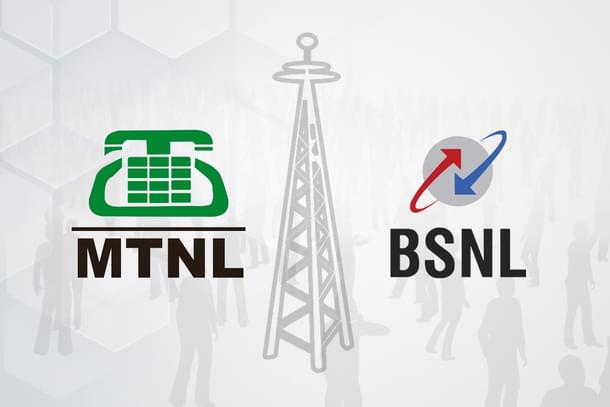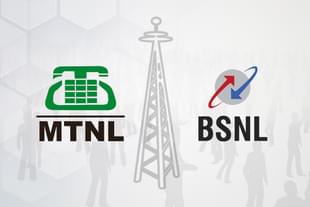Business
Two More Air Indias In Making: Government Must Exit BSNL, MTNL Before It’s Too Late
R Jagannathan
Aug 16, 2018, 12:24 PM | Updated 12:23 PM IST
Save & read from anywhere!
Bookmark stories for easy access on any device or the Swarajya app.


As a new triopoly emerges in India’s mobile telephony and data services sector, the government should worry about the likelihood – in fact, certainty – that it now has two more Air Indias on its hands, where taxpayer resources will have to be endlessly wasted. It should get out when it still can with its head held high.
Bharat Sanchar Nigam Limited (BSNL) and its little brother Mahanagar Telephone Nigam Limited (MTNL) are bleeding profusely, and no power on earth can save them from destroying themselves in the current cut-throat telecom market. Both are overstaffed, overburdened, and plain and simply uncompetitive and unviable. MTNL is clearly a goner, and the speculation is that it cannot afford to renew its spectrum licence when it falls due next year.
The last financial results available (2016-17) show that MTNL’s revenues were just about enough to pay wages. BSNL’s staff were estimated to be gobbling up half the company’s annual revenues, when staff costs as a percentage of turnover were in single digits in most other telecom companies.
A Mint report quotes BSNL chairman and managing director Anupam Shrivastava as postponing the company’s hoped-for tryst with profits by yet another year, to 2019-20, since it won’t be possible this year due to “market disruptions”. In the last two financial years (2016-17 and 2015-16) for which audited figures are available, BSNL made net losses of Rs 4,786 crore and Rs 4,875 crore.
Shrivastava’s mild optimism about making some money some time in 2019-20 stems from the fact that it has added subscriber numbers over the last two years, as other unviable telecom players exited the field (Tata Tele, Telenor, Reliance Communications, and Aircel, among them). But this is unbelievable, for gaining subscribers when tariffs are falling or low means more losses.
The reality is that India’s rapidly maturing telecom market will now operate to “The Rule of Three”, an idea propounded by two Indian-origin B-school professors in the US, Jagdish Sheth and Rajendra Sisodia, in a book with the same name. Their basic discovery is that in any mature market which has no major entry or exit barriers, there can be only three general players with 70-90 per cent market share. The rest have to be specialists or niche players. BSNL’s future can only be as a niche player, if at all, but one should not bet on it.
According to the May 2018 subscriber data provided by the Telecom Regulatory Authority of India (TRAI), India’s top three telecom players (Bharti Airtel, Vodafone-Idea and Reliance Jio have an overwhelming 87 per cent of the market between them (around 986 million out of a total wireless subscriber base of 1,131 million). BSNL and MTNL, between them, have around 10 per cent, or 116 million users.
These numbers don’t look too puny, but in an industry hurtling towards further losses under the pressure of tariff wars, they don’t mean much. Especially when neither BSNL nor MTNL has any hope in hell of turning a profit. With their super-large employee bases – BSNL had 1.96 lakh workers (see page 28 of annual report) and MTNL 27,919 (see page 14 of annual report) in 2016-17 – these companies essentially exist to keep their staff employed rather than to serve customers. With just a tenth of BSNL staff, Bharti Airtel made more than twice its revenues in 2016-17. There is no way this kind of productivity gap can ever be bridged without a hefty round of staff reductions.
So, what should the government do? The easy answer is privatise the companies, especially BSNL, and fund the voluntary retirement of excess staff. But no government can do this in an election year; this can happen only after May 2019, assuming we still have a strong government in place at that time.
The next best thing to do is to offer a 49 per cent stake and the 116 million customer base to the highest bidder, with a promise to offload the balance equity at market prices when the legislation for privatisation is in place. The government should also promise non-interference in the running of these two companies till them, with its rights restricted to nominating a non-executive chairman and two directors. They should have no veto on operational decisions.
But one doubts governments in election mode have the stomach even for this limited action. By May 2019, we will have three Air Indias on our hands. Poor taxpayers.
Jagannathan is former Editorial Director, Swarajya. He tweets at @TheJaggi.





